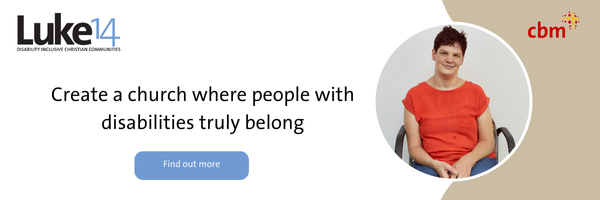By Mariska Meldrum
Mariska has lived with Bipolar Disorder since she was 18. During the past 28 years, Mariska has worked to reduce stigma around mental health conditions. As a lived experience ambassador for Monash University’s HER Centre Australia and the internationally renowned Multidisciplinary Alfred Psychiatry Research Centre (MAPrc), Mariska’s story has been featured on Channel 10’s The Project, ABC National, the Herald Sun, The Age and other media.
Mariska is passionate about inspiring Australian churches to better understand and support people living with mental health conditions.
You can watch Mariska share her story here:
Audio Quotes
I call mental illness the invisible disability because so often we don’t realise in churches how many people are actually struggling. They might turn up at church and put on a happy mask, but behind that mask when they get back home they are struggling with anxiety, they are struggling with depression, they’re struggling with other forms of mental illness and so I think that it’s so important in churches to create a safe space to have other people to share stories of mental health conditions they’re struggling with.
I was diagnosed at the age of 18 with a condition called bipolar disorder. It’s a condition that there’s no cure for and it’s managed with medication.
As a young child I was taught and I really believed that I was knit together in my mother’s womb, that God had a plan for me from the moment I was conceived. And I really believed that, so when I was diagnosed with a mental health condition it really rocked my faith for a time.
I could have thought “does this mean that God no longer cares for me?” Has he given me this condition as a punishment? And at that crossroads I had to make the decision that no I believe that God had known this ahead of time, he’d known every day of my life.
…I know there’s a lot of stigma and there can be a lot of shame around it. For me I don’t want it to define my life - who I am or what I can do.
…It’s who I am and it’s allowed me to have empathy and reach out to other women who have struggled with mental health conditions.
The message that I would love to share with pastors and church leaders is that there is a culture of shame within churches around mental illness. It’s being hidden. One third of Australians are currently struggling with anxiety and where is that being talked about in the church….
We talk about stigma and how we need to break down the stigma but that often starts with one person - it might often be a church leader or a pastor - getting up the front and saying I struggle in this area, it’s nothing to be ashamed of. But if you’re too ashamed to speak about it what culture is that setting up in the church?
It’s really important that we create a safe space and that we follow up people that we know are struggling with disability. So many people in your churches are struggling that we need as churches to be equipped to reach out and be the communities that God called us to be.


